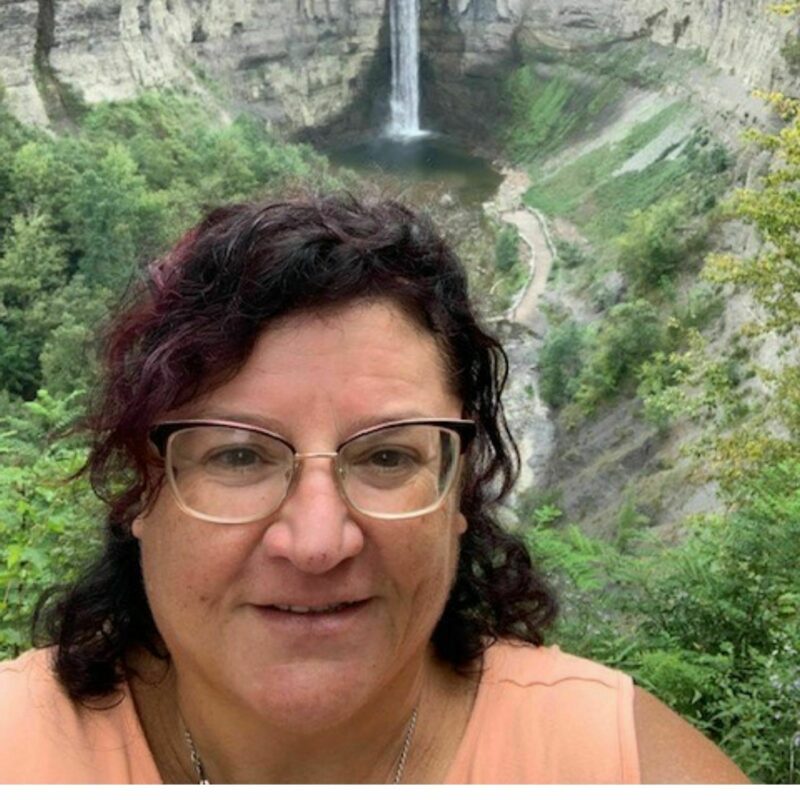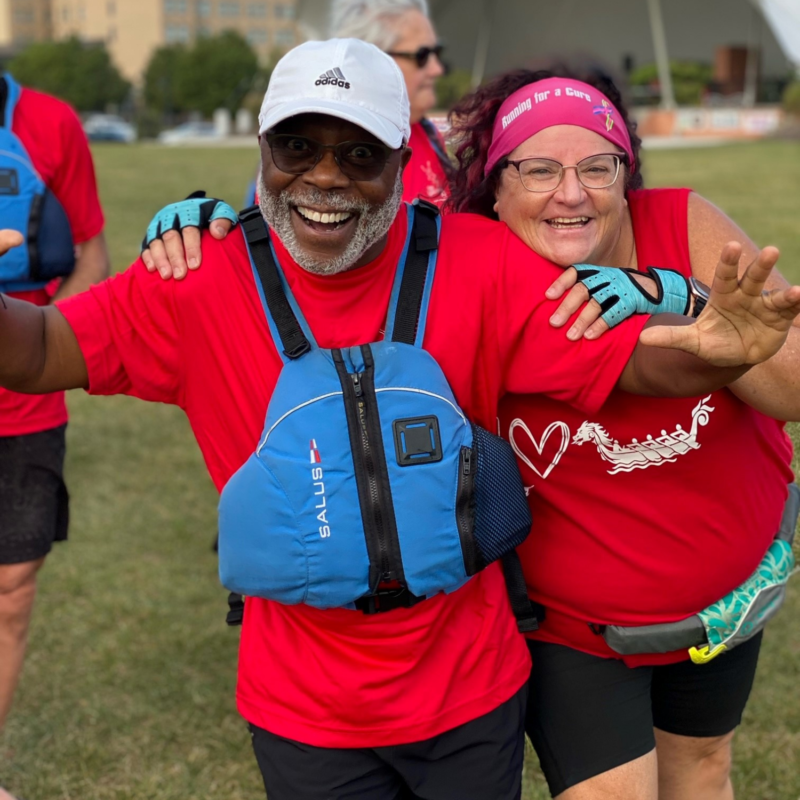
Holiday Hours: Mon Dec 22: open 9:00am-5:00pm. Tues Dec 23: open 10:00am-3:00pm. Wed Dec 24 & Thurs Dec 25: CLOSED. Fri Dec 26: open 10:00am-3:00pm.
Age: 53
Metastatic Breast Cancer Participant
My journey started in February of 2015. I went to my OB/GYN for my “yearly” appointment. I asked about doing a mammogram. She said that “they” have changed the guidelines and now you only have to go every other year. I said, “Really? Even with my family history?” She said, “You can go, but the new recommendation is every other year.” Thank goodness I went! Be diligent! Be your own advocate!
I was diagnosed with Stage 3B on 3/10/15 then diagnosed as metastatic Stage 4 on 4/29/15 when a lesion was found in my spine. I am de novo–someone who is metastatic from first diagnosis, it is the exception rather than the rule. About 90% of those with metastatic breast cancer were previously treated for breast cancer; only 10% of us are metastatic from the start. Leave it to me to be in the 10%!
I am BRCA2 positive, but more importantly I am a wife, mom, daughter, sister, aunt, godmother, a marathon runner, cyclist, kayaker & friend. I have been married 32 years to my high school sweetheart and have a wonderful daughter and son-in-law! I have so many supporters: family, church family, friends, and coworkers.
I have done Race for the Cure since 2008 in memory of my grandmother and in honor of my aunts (maternal and paternal) and my two best friends, Anita and MaryBeth. In 2015, I did the race for me and all the Forever Fighters!

- Alice Santurri

My treatment will never, ever end until my journey on earth is over. Now it is a fight for quality of life. Drugs to keep me alive to make sure I can function as normal as possible. Although metastatic breast cancer has spread to another part of the body, it is considered and treated as breast cancer. For example, breast cancer that has spread to the bones is still breast cancer (not bone cancer) and is treated with breast cancer drugs, rather than treatments for a cancer that began in the bones. I had my ovaries out since my cancer is estrogen fed and because I carry the BRCA2 gene. I am taking letrozole and Ibrance right now, but treatments will change over time as the cancer adapts to and builds resistance against therapies. Typically, a treatment is used until the cancer progresses. Then your healthcare team will suggest a new course of treatment. It is hard to predict how long a specific treatment may work in any person—some treatments work for many years, while others need to be changed more often.
I did not know that having the “worst” kind of breast cancer doesn’t necessarily mean you will have chemo right away. I assumed ALL cancer patients had chemo. In my case, I will not have chemo until all the less toxic options have been tried first. This is both because of my cancer’s characteristics and because my cancer remains under good control.
My advice to others is to “Be diligent about your health. Be your own advocate! And Live Life Happy.”
